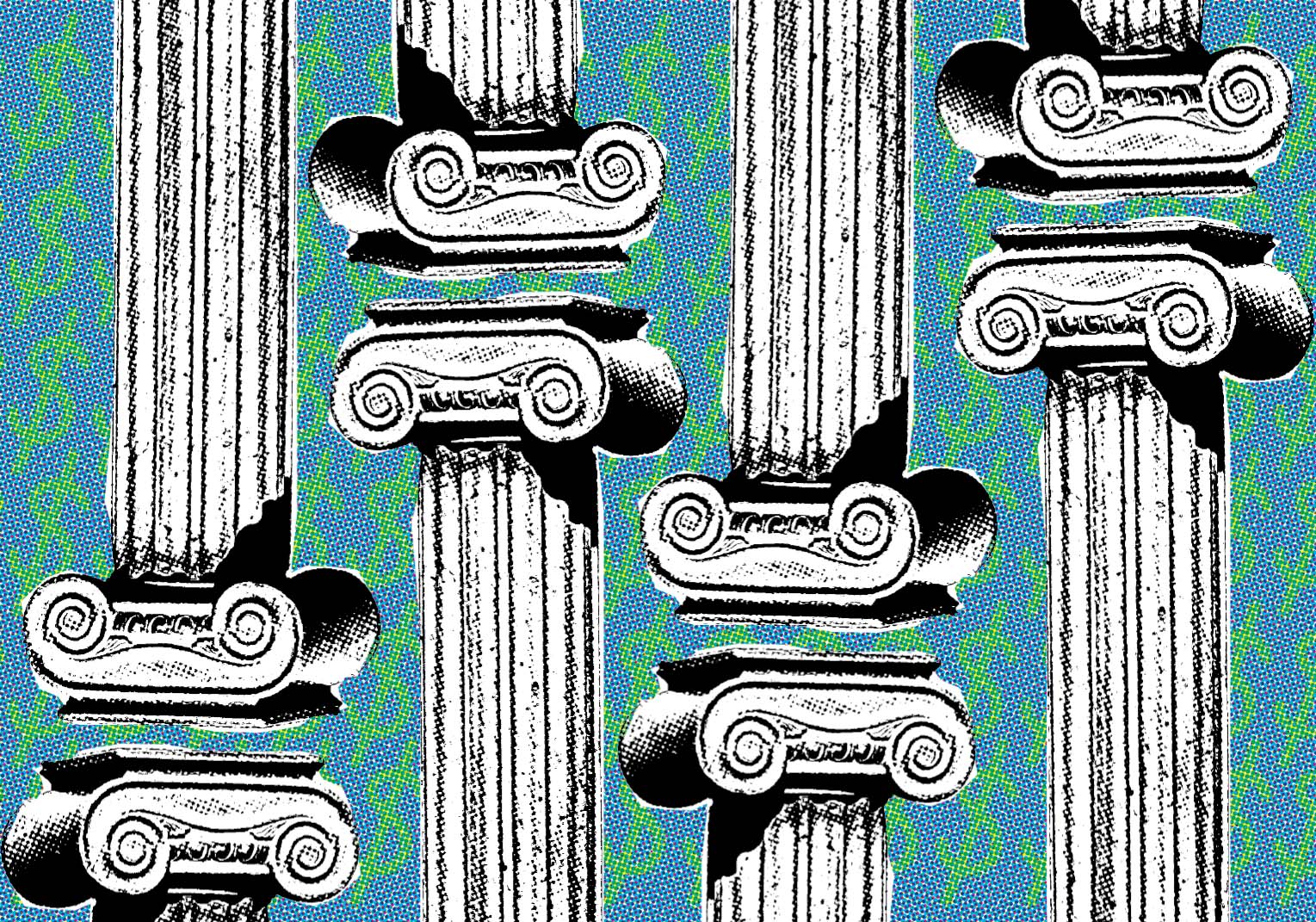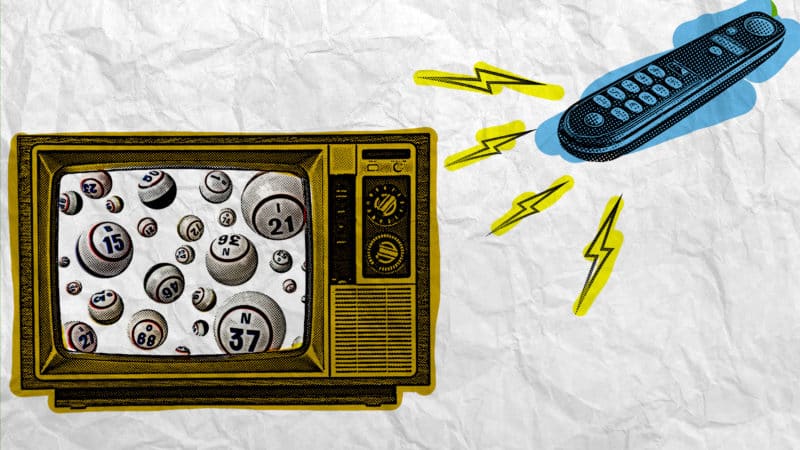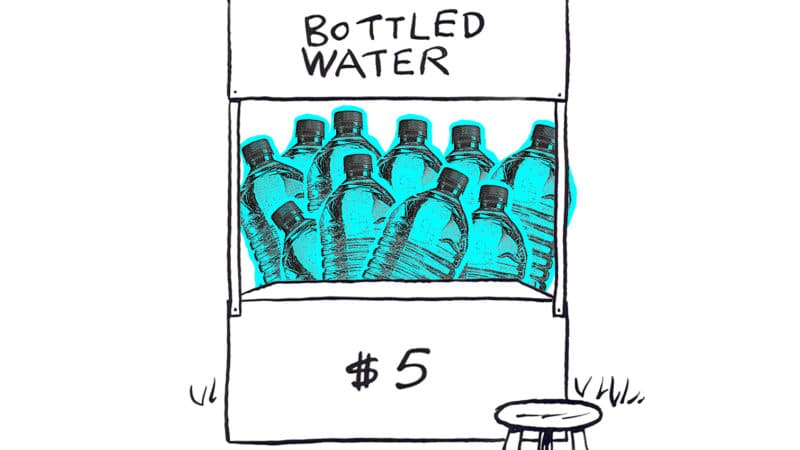The unhoused rarely have the money to pay fines, yet over and over they are ticketed, compounding problems.
By Mary Stewart
I remember the first time that the police stopped and ticketed me for panhandling on the I-95 off-ramp in West Palm Beach. The officer advised me to pay the fine to keep my license in good standing.
I didn’t take his advice. I figured that I couldn’t even afford food and housing at that time, I certainly couldn’t afford a car, and my stomach rumbled with hunger pains every day — my driver’s license was the last thing on my mind.
Now I owe about $5,000 in unpaid panhandling tickets and court fees, which continue to be held against my license.
While in Florida, I always used the Palm Tran bus. It wasn’t a big deal not having a car. Then, I moved back to rural South Carolina in 2020, and found that I had no reliable transportation without a license. I struggled to find a ride to the grocery store and doctor’s office, a job was out of the question, I even signed up with Vocational Rehabilitation but they said they couldn’t place me on a job without a driver’s license. I was stuck.
My estranged husband, Allen, is in the same boat. He currently lives at a relative’s house in South Carolina after ten years of homelessness in Florida and can’t find anyone to drive him to work or doctor’s appointments.
Neither of us have ever been pulled over or even had a speeding ticket. We simply owe money to Palm Beach County, Florida.
“Taking a man’s license cripples him. I can’t get around to do anything at all. I definitely can’t hold down a job,” Allen told me.
While license suspensions for unpaid court fees is a standard practice that impacts all Floridians — housed or unhoused — it disproportionately affects the homeless as we tend to accumulate tickets and court costs for minor offenses like panhandling, open containers and trespassing. We also have no way to pay those fines.
My initial rationale made sense at the time. I was naturally more concerned about my immediate needs than I was about driving a car. I also figured that being ticketed for pedestrian violations was cheaper and more morally sound than racking up court costs for shoplifting or other petty crimes.
My friend Tree felt the same way. He was a certified crane operator who had several prior charges for petty theft before becoming a homeless panhandler. He then realized that he’d rather ask for help than steal.
But the donations still came at a hefty price. He needed his Commercial Driver’s License to work. The panhandling tickets and subsequent loss of his license kept him trapped in a cycle of homelessness for many years. Finally, his family agreed to help him pay everything off. He now runs his own business and is doing well.
This shows how something as simple as a driver’s license can significantly change the life of a homeless person and make it possible for them to get back on their feet. Allen agrees that his license would open many doors for him as well.
“If I had my license, I could get to and from a warehouse or welding job every day,” he explained. “My brother works for a tow truck company. He could get me hired on if I was able to drive.”
However, the loss of a driver’s license means the loss of many opportunities that could improve the lives of those who are currently or formerly homeless. And if you’re sleeping outside and begging for money, those opportunities are desperately needed.
It should also be noted that being homeless doesn’t necessarily mean that you don’t have a car. Some unhoused people sleep in their cars, including my friends Jessica and Brett.
Since the cost of living increased, I have seen more and more people sleeping in parked cars at local plazas. For them, losing their license would mean losing their only source of shelter too.
Personally, my driver’s license suspension is keeping me stuck in Florida and on the streets. I could return to South Carolina, but doing so would leave me without job options or even transportation to the doctor or grocery store.
Last year, I reached out to a nonprofit law firm, Chainless Change, for assistance with my license. They informed me that I’d have to pay off two cases, and another could be converted to community service. The remaining cases weren’t being held against my license but could be in the future.
They also told me that I could only take care of my license in person at the Florida DMV. I’m on Supplemental Security Income, I don’t even bring in enough money to pay for food and rent. The only way to make payments on the debt is to sleep outside.
While it’s always advisable to heed the advice of an attorney or legal advocacy group, I took the initiative to conduct my own research. I discovered that proof of payment can be obtained online through Palm Beach County e-case view and that the DMV does offer the option of mailing in proof of payment and a money order for the reinstatement fee if you live out of state.
This comes as a huge relief to Allen who was planning to return to the streets of Palm Beach County to try to get his license back even though he has a home in South Carolina.
“Right now, I’m going for my disability but I’d rather work. I’m not even sure I can get my benefits without transportation. I had a doctor’s appointment for Social Security last month, but I couldn’t get there,” he said.
Many years ago, Florida judges would waive my court costs due to being on SSI, but not anymore. I now get charged fines just like anyone else. While it’s understandable that panhandling is a traffic violation — hence the tickets — withholding a homeless person’s license only further contributes to their hardship.
A few years ago, the ACLU and Southern Legal Counsel filed a lawsuit on behalf of a homeless man in Ocala whose license was suspended due to unpaid court fees on two ordinance violation cases.
The judge ruled that licenses can only be suspended due to criminal acts, not ordinance violations. Almost 13,000 people have had their driver’s licenses reinstated as a result of this case.
The constitutionality of panhandling tickets and court costs for charges that are unfairly levied against the homeless is also questionable. Palm Beach County rescinded their panhandling ordinance after it was challenged due to the vast majority of offenders being homeless and thus violating the Equal Protection Clause.
I was ticketed for panhandling on the highway off-ramp for being a pedestrian on a limited access facility. I doubt many people hang out on off-ramps besides road workers, stranded motorists and homeless people.
It would be safe to make an educated guess that most people who violate that traffic law are also homeless. And yet, we are still being held responsible for paying those traffic tickets and court costs.
Ideally, court costs should be waived or community service should be ordered in lieu of fines for those who are struggling financially, including the homeless and those receiving government assistance.
Suspending a homeless person’s license only makes it harder for them to get a job and a place to live. And without a job, how does the state expect the fines to ever be paid?



